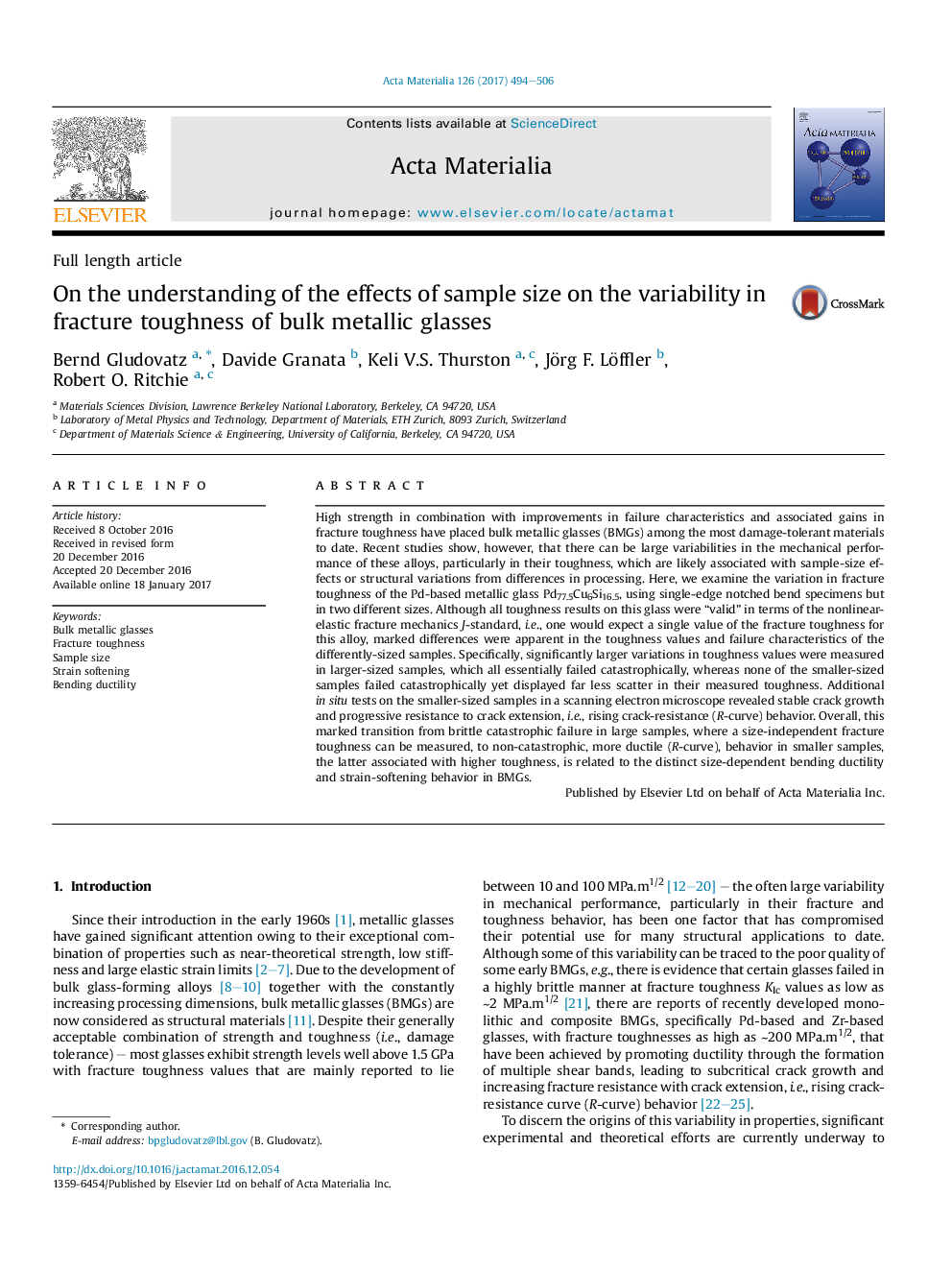| Article ID | Journal | Published Year | Pages | File Type |
|---|---|---|---|---|
| 5436404 | Acta Materialia | 2017 | 13 Pages |
High strength in combination with improvements in failure characteristics and associated gains in fracture toughness have placed bulk metallic glasses (BMGs) among the most damage-tolerant materials to date. Recent studies show, however, that there can be large variabilities in the mechanical performance of these alloys, particularly in their toughness, which are likely associated with sample-size effects or structural variations from differences in processing. Here, we examine the variation in fracture toughness of the Pd-based metallic glass Pd77.5Cu6Si16.5, using single-edge notched bend specimens but in two different sizes. Although all toughness results on this glass were “valid” in terms of the nonlinear-elastic fracture mechanics J-standard, i.e., one would expect a single value of the fracture toughness for this alloy, marked differences were apparent in the toughness values and failure characteristics of the differently-sized samples. Specifically, significantly larger variations in toughness values were measured in larger-sized samples, which all essentially failed catastrophically, whereas none of the smaller-sized samples failed catastrophically yet displayed far less scatter in their measured toughness. Additional in situ tests on the smaller-sized samples in a scanning electron microscope revealed stable crack growth and progressive resistance to crack extension, i.e., rising crack-resistance (R-curve) behavior. Overall, this marked transition from brittle catastrophic failure in large samples, where a size-independent fracture toughness can be measured, to non-catastrophic, more ductile (R-curve), behavior in smaller samples, the latter associated with higher toughness, is related to the distinct size-dependent bending ductility and strain-softening behavior in BMGs.
Graphical abstractFigure optionsDownload full-size imageDownload high-quality image (256 K)Download as PowerPoint slide
